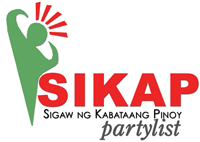ISSUE 2: A growing number of youth are engaging in risky behaviors without fully understanding its consequences.
[Barriers to Youth Empowerment and Well-being]
BACKGROUND ON ISSUE 2:
Increasing risky behaviors among youth
- Philippines has 3.4 million drug dependents. More than half of this number belongs to the 15-27 age group. That means almost 2 million young people in this country are hooked on illegal substances—and this number continues to grow. (YAPS-NYC, 2004).
- In 2002, YAFS, a comprehensive survey on Filipino youth and sex and risk behaviors revealed that (15 to 24 year-age group):
- Twenty-three percent (23%) of young people engaged in pre-marital sex
- Of this, 11.8 percent of 15-to-19-year olds was sexually active
- This figure is significantly higher (40 percent) among 20-to-24-year-olds
- Only 21 percent practiced contraception during their first premarital sexual intercourse
- A third (34.8 percent) had sex with more than one partner
- Four percent (4%) approve of abortion
- Almost half of youth surveyed (41 percent) were currently drinking
- Twenty-one percent (21%) was currently smoking
- Twelve percent (12%) have, at one time or another, thought of committing suicide
- This same study showed that situations or characteristics that contribute to such risk behaviors are: low educational attainment, being out of school, and being in unstable marital conditions (such as having been separated, widowed, or in a live-in marital arrangement).
- Young women (15 to 24 yrs. old) contributed to 30 percent of total fertility rate (Ericta, 2003).
- The new “surrogate parents,” the media is fast becoming the main source of information and guide to “what is right” and “what is wrong” by the youth.
- There remain very few services available that provide youth with reproductive health services. FP services are limited to those who are married.
- National budget allocation for health should be increased to accommodate the needs of local government hospitals.
- Youth should be equipped with correct information and essential life skills that will help them make responsible decisions regarding their health and sexuality
- Juvenile delinquents should be given legal and societal support to help them change the course of their lives.
- “Youth friendly” facilities and personnel should be made available and accessible to youth. Local health care workers should be trained and sensitized to better understand youth health issues.
- Reproductive health counseling and services (contraceptives) to both married and unmarried youth should be made available.
- Responsible parenthood programs should be launched in all LGUs.
- Campaigns and programs with media and SK should emphasize the value of family togetherness and encourage open communication between parents and children.
- Digital technology should be available to OFWs and their families so that they could keep in touch.




No comments:
Post a Comment